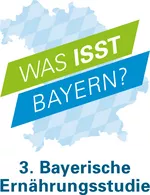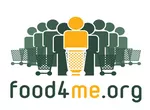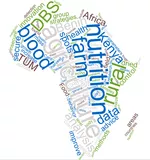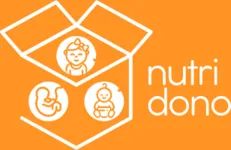Research Projects
The group has been involved in several national and international research projects funded by the European Union’s Seventh Framework Programme or the Horizon 2020 Framework, the German Federal Ministry of Education and Research (BMBF), The German Federal Ministry for Economic Cooperation and Development (BMZ), or the Bavarian State Ministery for Nutrition, Agriculture and Forestry.
Current Projects

Die Bedeutung der Ernährung für die Gesundheit ist seit langem bekannt. Die persönliche Nahrungsaufnahme hat einen großen Einfluss auf den kurz- und langfristigen Zustand der Gesundheit. Nach der Nahrungsaufnahme kommt es zu starken Schwankungen des Blutzuckerspiegels. Diese Schwankungen sind von Person zu Person unterschiedlich. Einflussfaktor ist dabei nicht nur die Nahrungsaufnahme an sich. Sondern auch andere Faktoren, wie Ernährungsgewohnheiten, Körperbeschaffenheit, Lebensstil, körperliche Aktivität und Schlaf, als auch die Zusammensetzung der Darmbakterien, scheinen maßgeblich an den Schwankungen des Blutzuckers beteiligt zu sein.
Food & You DE ist eine Studie, die eben diese Schwankungen des Blutzuckers nach der Nahrungsaufnahme untersucht und dabei besonders die oben genannten individuellen Faktoren beachtet. So wird es ermöglicht die Gesundheit und Ernährung der Teilnehmenden auf einer persönlichen Ebene zu erfassen und zu bewerten.
Die Entwicklung einer personalisierten Ernährungsstrategie, insbesondere im Hinblick auf die persönliche Blutzuckerreaktion, ist sehr wichtig, da:
-
jeder Mensch unterschiedlich auf ernährungsbezogene Faktoren reagiert,
-
personalisierte Ernährungsweisen allgemein eine höhere Wirkungskraft haben als allgemeine Ernährungsempfehlungen, und
-
langfristige Ernährungsverhaltensänderungen begünstigt werden.
Food & You DE wird von der Technischen Universität München (TUM) geleitet und ist ein Seitenarm der großangelegten Food & You Studie. Initiiert wurde Food & You vom Digital Epidemiology Lab der École polytechnique fédérale de Lausanne (EPFL) in der Schweiz, wo das Projekt schon seit 2019 erfolgreich stattfindet. Die gesamte Studie erfolgt Online. Sie bekommen das benötigte Studienmaterial per Post zu Ihnen nach Hause geschickt. Die Kosten werden von uns getragen. Es wird keine persönlichen Termine geben und Sie führen die Studie (unter Anleitung) eigenständig durch.
Durch die Teilnahme an diesem Projekt lernen Sie den Zusammenhang zwischen Ihrer Nahrungsaufnahme und Ihrem Blutzuckerspiegel kennen! Dadurch erhalten Sie ein besseres Verständnis dafür, wie Ihr Blutzuckerspiegel auf Nahrung, Bewegung und Schlaf reagiert, und was Ihre Darmbakterien damit zu tun haben!
Die Datenerhebung der Studie wurde Ende 2023 beendet!
Herzlichen Dank für Ihr Interesse!
Food & You DE ist im Deutschen Register Klinscher Studien DRKS unter DRKS-ID DRKS00030487 eingetragen.
Auf der Citizen Science Platform Bürger schaffen Wissen ist Food & You DE auch zu finden.
Harnessing the potential of underutilized crops to promote sustainable food production
In Europe, several nutrient-dense foods are not widely grown and consumed, despite their suitability to European climates and environments, and viability for sustainable production with lower inputs. Some of these underutilised crops such as rye or legumes are stress resilient and have the potential to supply key nutrients, improve diets and reduce the risk of diet-related diseases. Therefore, the EU funded COST Action DIVERSICROP aims to harmonise fragmented data and develop strategies for the sustainable cultivation of selected underutilized crops, striking a balance between agricultural sustainability and human nutritional value. The three target crops of the project are peas (Pisum sativum L.), rye (Secale cereale L.) and chickpeas (Cicer arietinum L.).
Nourishing the future for healthy children and families
NutriDono aims to enhance the adequacy and nutritional quality of food distribution systems, focusing on improving children's nutrition. Recognizing the critical role of proper nutrition in children's health, we strive to ensure every child receives essential nutrients for growth and well-being. By empowering volunteers with advanced tools like the NutriDono app and providing nutrition education, families will gain insights into the importance of adequate nutrition for their health and that of their children. The initiative enhances volunteers' skills and empowers families by offering suggestions that help them make mindful food choices. Through education and engagement, volunteers will guide families toward making independent healthier choices, bridging immediate food relief with long-term nutritional well-being. Our strategy will increase dietary diversity in distribution packages and promote sustainable nutritional practices across the EU. By leveraging technology and community involvement, we are paving the way for healthier families and a more equitable food system. In the project, the Public Health Nutrition Group takes responsibility
The NutriDono project has received funds by EIT Food for a three year period from 2025 - 2027. |
Finalised Projects

Die Dritte Bayerische Verzehrsstudie (BVS III) wird gemeinsam mit den Projektpartnern Lehrstuhl Epidemiologie des Universitätsklinikums Augsburg sowie dem Kompetenzzentrum für Ernährung (KErn) durchgeführt. Gefördert wird die Studie durch das Bayerische Staatsministerium für Ernährung, Landwirtschaft und Forsten (StMELF).
Ihr Ziel ist es, den aktuellen Ernährungszustand sowie die Verzehrsgewohnheiten und die Nährstoffzufuhr der bayerischen Bevölkerung zu erfassen. Sie bildet damit eine solide Grundlage zur Einschätzung des Risikos für ernährungsmitbedingte Erkrankungen und zur Entwicklung geeigneter gesundheits- und ernährungspolitischer Maßnahmen.
Forschungsschwerpunkt der TUM liegt hierbei auf dem Aspekt der Nachhaltigkeit der Ernährung.
Die Erhebungen der BVS III wurden Anfang 2023 abgeschlossen.
Weitere Informationen finden Sie hier.
Contribution to the 15th Nutrition Report by the German Nutrition Society
Food balance sheets (FBS) provide comprehensive annual information on a country's food supply reflecting possible trends in a population’s overall food consumption. However, FBS basically refer to agricultural products and primary commodities, rather than foods ready to be consumed. Therefore, FBS have only limited value for assessing the nutritional adequacy of a country’s food supply. But certain data transformations could substantially enhance the suitability of FBS for public health purposes, considering human and planetary health alike.
FNS Cloud is a European research project funded by the European Commission's Horizon 2020 Framework. It consists of 36 partners from 15 European countries and aims at overcoming the fragmentation of the European research infrastructure by federating Food Nutrition Security (FNS) data essential for addressing diet, health, and consumer behaviour as well as on sustainable agriculture and the bio-economy. The implemented cloud solution will reduce knowledge gaps that inhibit public health and agricultural policy and will benefit the food industry, reducing development and production costs and will facilitate informed consumer choice and ultimately, healthier European citizens.
Enable Cluster
Enable is an interdisciplinary competence cluster of nutrition research funded by the Federal Ministry of Education and Research (BMBF). It is particularly dedicated to research for strategies to promote healthier food choices in all stages of life.
Work Package 3.5 of the Enable cluster deals with Personalized Nutrition & Communication investigating ICT based means for modifying dietary habits.
Nutrition & Health
Nutrition has a significant impact on health and plays an important role in the development of chronic diseases such as diabetes mellitus and cardiovascular diseases. Nutritional recommendations as a preventive measure are often based on general population guidelines, without addressing individual factors. In the EU-funded project Food4Me (www.food4me.org) first steps were taken towards a personalized dietary intervention.
Personalized Nutrition
In Work Package 3.5 of the Enable cluster, this approach is continued and new methods for the individualization of nutritional recommendations are developed and the effectiveness on health behavior will be examined. Recommendations are based on food preferences, nutrient uptake, health-relevant blood parameters and physical activity. The collection of the individual data and the output of the personalized nutritional recommendations are carried out via a smartphone app, which uses techniques from the area of ??persuasive design and recommender systems.
Due to the high number of smartphone owners and app users, a mobile nutrition app represents a good way to reach many people and make nutritional interventions easier for both the scientists/nutritionists and the participants of the intervention. Smartphone app based interventions have already been successful in reducing body weight and stimulating physical activity. However, there is a lack of data that investigates nutritional behavior in this context.
Nutrilize
Nutrilize is a nutrition app developed by scientists from the field of nutrition and informatics. With this smartphone app the individual nutrition behavior can be recorded. Other individual indications, like body weight or food preferences, have to be inserted separately. In consideration of this information, recipe recommendations are given that are individually tailored to you.
With the smartphone app we want to reach more people than with conventional nutrition advice, which is not available or affordable for many people. The app provides an interesting alternative to conventional methods, as you can enter data from home or from the road and immediately get recommendations back. In addition, the app makes it easy to track your personal progress, allowing you to keep track of them.

eNutri2019 ist eine von der Technischen Universität München durchgeführte Interventionsstudie, die die Effektivität von personalisierter online Ernährungsberatung im Vergleich zu konventionellen Empfehlungen untersuchen soll. Führt personalisierte online Ernährungsberatung zu einer stärkeren Veränderung des Ernährungsverhaltens?
Ablauf
Nachdem Teilnehmerinformationen erhoben worden sind, werden alle Teilnehmenden von eNutri2019 gebeten einen online-Ernährungsfragebogen auszufüllen (Dauer ca. 30-40 min). Nach erfolgreicher Übermittlung eingegebener Daten werden durch die Website eine von zwei Ernährungsempfehlungsformen herausgegeben, die durch die Teilnehmer nach bestem Gewissen umgesetzt werden sollten. Nach 4 Wochen werden die Daten erneut erhoben und die Beantwortung des Fragebogens wird wiederholt. Schließlich werden die Teilnehmer gebeten den Ernährungsfragebogen zu evaluieren.
Nach erfolgreicher Teilnahme erhält jeder Proband einen 10 € Amazon Gutschein.
Anmeldung
Sie sind volljährig, wollen bei der Studie eNutri2019 teilnehmen und Ihre Ernährung bewerten lassen?
Hier finden Sie unser Kontaktformular.
Bitte beachten Sie: Um zu überprüfen, ob Sie für eine Teilnahme an eNutri2019 geeignet sind, benötigen wir alle im Kontaktformular abgefragten Angaben. Bitte geben Sie auch Ihre korrekte Wohnadresse an, da die Einverständniserklärung an diese gesendet wird.
Kontakt
Sie haben Fragen? Alle Informationen finden Sie in unserem Teilnehmerinformationsblatt.
Bei weiteren Fragen steht Ihnen unser FAQ zur Verfügung. Falls Ihre Frage dennoch nicht geklärt werden konnte, können Sie uns jederzeit per Mail kontaktieren.

Ist es möglich, bessere, gesündere und individuellere Ernährungempfehlungen zu erstellen und damit den individuellen Lebensstil zuverbessern? Wenn wir die Beziehung zwischen Nahrung und Genexpression verstehen, könnte das Wirklichkeit werden. Food4Me ist ein Forschungsprojekt, das von Universitäten geleitet und von der EU finanziert wird. Es hat zum Ziel, alle Aspekte dieser hochinteressanten Fragestellung zu untersuchen.
Die vollständige Entschlüsselung des menschlichen Genoms im Jahr 2000 hat die Möglichkeit einer individualisierten Medizin einschließlich einer personalisierten Ernährungsweise eröffnet. Während dieser Zeit entstand das Arbeitsgebiet der „Nutrigenomics“. In ihm wird die Beziehung zwischen Nahrung und Genexpression untersucht. Viele hatten die Hoffnung, auf der Basis des genetischen Profils einer Person die zu ihr passenden Ernährungsempfehlungen planen zu können.
Das Versprechen einer personalisierten Ernährungsweise konnte sich jedoch nicht zu einer kommerziellen Dienstleistung entwickeln. Auch hat sich die Abstimmung diätetischer Ratschläge mit genetischen Profilen als schwierig erwiesen. Einige Firmen bieten die genetische Entschlüsselung zusammen mit einem Gesundheitsbericht an, doch diese Dienstleistungen beruhen oft auf ungenauen Informationen.
Es besteht Bedarf, die Chancen und Herausforderungen auf dem Gebiet der personalisierten Ernährung umfassend zu analysieren. Außerdem bleibt die fundamentale Frage bestehen: Wie können wir unser derzeitiges Verständnis über Lebensmittel, Gene und Stoffwechsel am besten für die Entwicklung einer gesünderen Ernährungsweise anwenden, die genau auf ein Individuum zugeschnitten ist?
Um diese Frage beantworten zu können, hat Food4Me eine internationale Expertengruppe zusammengestellt. Sie soll das aktuelle Wissen über personalisierte Ernährung sichten und die Anwendung individualisierter Ernährungsempfehlung untersuchen. Das Food4Me-Projekt wird außerdem die Einstellungen der Verbraucher untersuchen und neue wissenschaftliche Werkzeuge für die Implementierung entwickeln.

Food insecurity and malnutrition are among the key challenges in West Africa. The majority of the rural population make their living from agriculture and most smallholder farmers rely on their production to meet their nutritional requirements. Next to the issue of undernutrition, overnutrition can also be found in developing countries nowadays, leading to a double burdon of malnutrition.
Personalized nutrition might contribute to overcome these problems by specifically taking regional available food into account. It makes use of information on food choices and/or total food intake and can include phenotypic data (such as anthropometrics) as well as biomarkers in blood.
Together with Agricultural Production and Resource Economics at TUM as well as Institut National des Recherches Agricoles du Bénin (INRAB) we are
- Performing an integrated analysis of livelihood strategies, rural labor, dietary habits and nutritional status of households in rural areas in Benin, West Africa
- Developing of a tablet-based dietary advice system to provide individual recommendations for households on food security and nutrition.
- Establishing methods for analyzing dried blood spots (DBS).
720 households were randomly selected in all agricultural zones of Benin. The study followed a within-subject experimental design with four rounds of data collection in 2017/2018.
In the first round, we gathered information on household composition, livelihood strategies, production systems, resource use and allocation, agro-ecological conditions, cultural backgrounds, dietary habits, nutritional status and anthropometrics of women, children and men. The interviews with household members were be performed by enumerators using apps on tablet PCs.
For the second, third and fourth round, the villages were randomly assigned to either an intervention or a control group. The control group received 10 basic recommendations on healthy nutrition in Benin. The intervention group was provided with personalized advice by means of a computerized feedback app. This feedback system made use of the households' food habits and advised to consume more or less of certain food in order to meet the members' individual estimated requirements. The system was developed in an interdisciplinary and iterative approach with the informatics department at TUM.
In about 200 households in Benin, men, women and children also donated dried blood spots (DBS), which are analyzed at INRAB in Benin. For this, TUM researchers established a measurement for analyzing soluble transferrin receptor in DBS to determine the iron status. INRAB researchers visited the TUM lab in October 2017 to learn this analysis technique at our lab and transfer their knowledge to their lab in Benin.
The analysis of the effectiveness of personalized nutrition advice in Benin as well as the DBS analyses are currently ongoing.
Quisper is a Server Platform (QSP) providing access to scientifically validaed data and knowledge rules relevant to personalized nutritional products and services. It will help companies and researchers access and apply scientifically sound data through an open-innovation platform with a wide range of web services.
Exploiting the concept of open application programming interfaces (APIs), the QSP is a technology based platform that aims to facilitate data exchange and collection. Predefined protocols will allow those engaged with personalised nutrition to identify, use or aggregate data and information from different sources and create new knowledge, new protocols and help citizens live healthier lives.
Quisper builds on a previous project called QualiFY that was funded within the EC's Seventh Framework. Since 2018, Quisper is finacially supported by EIT-Food.
- about the QuaLiFY project
- about Quisper
- about EIT-Food
last updated: 02.01.2025

